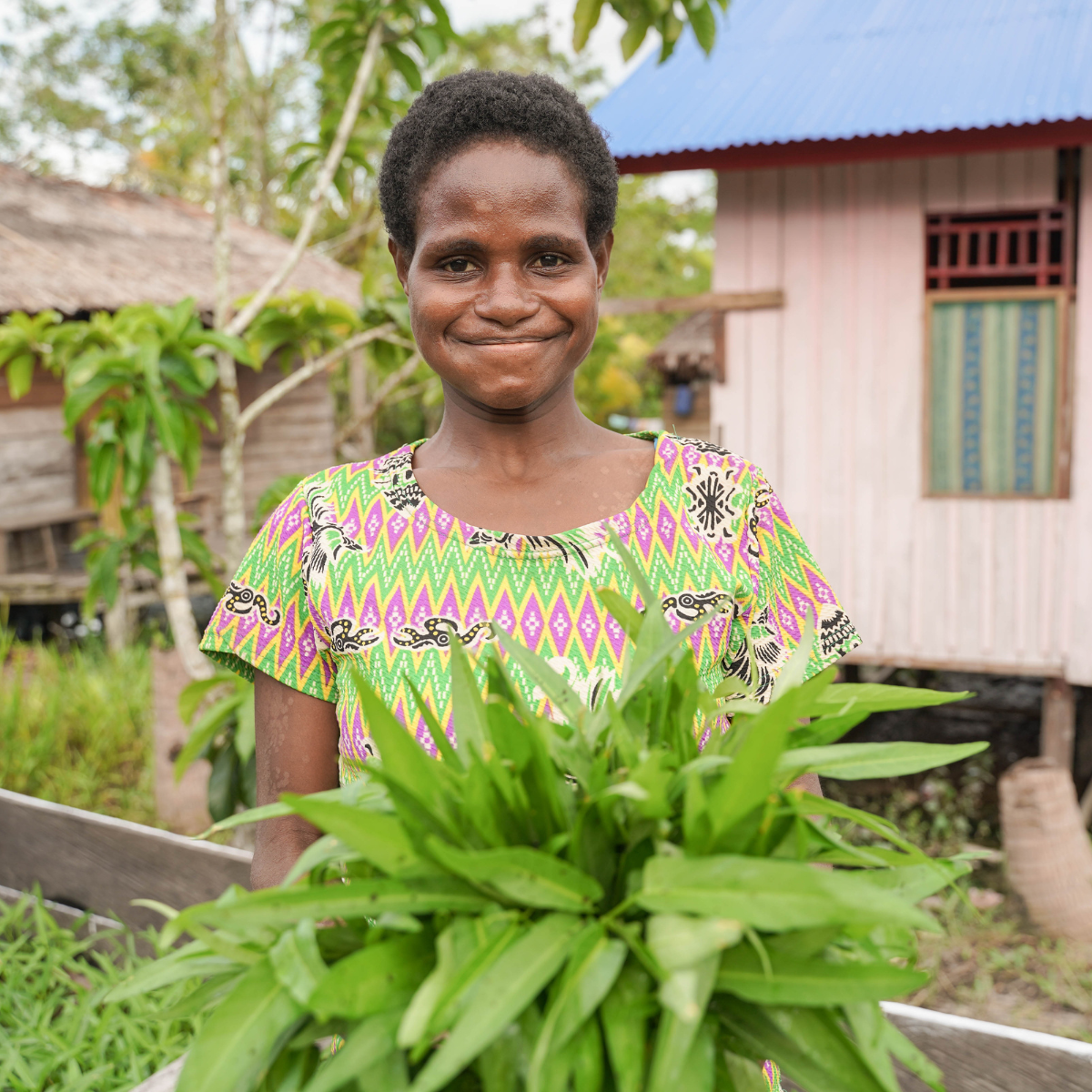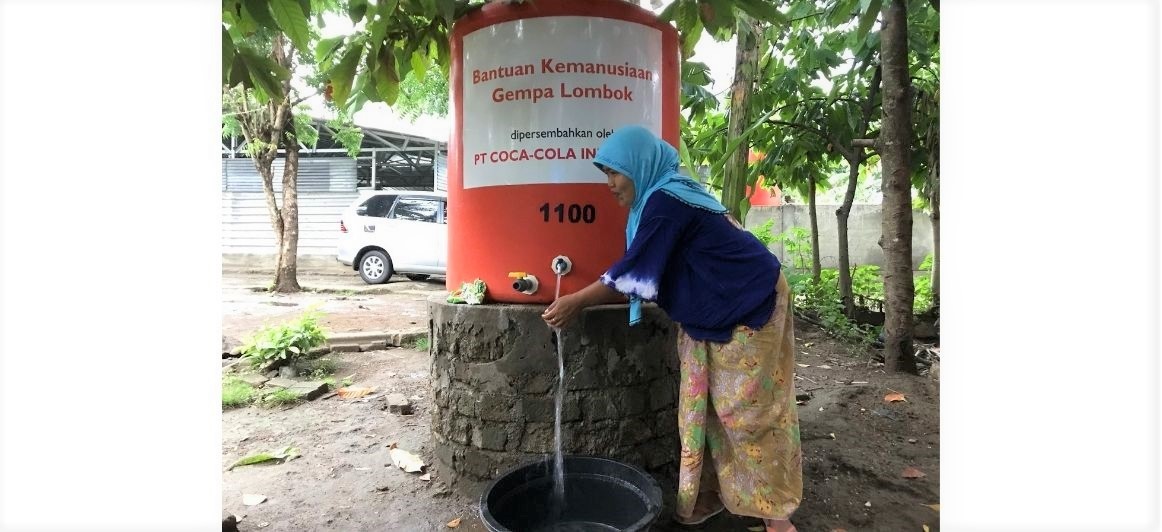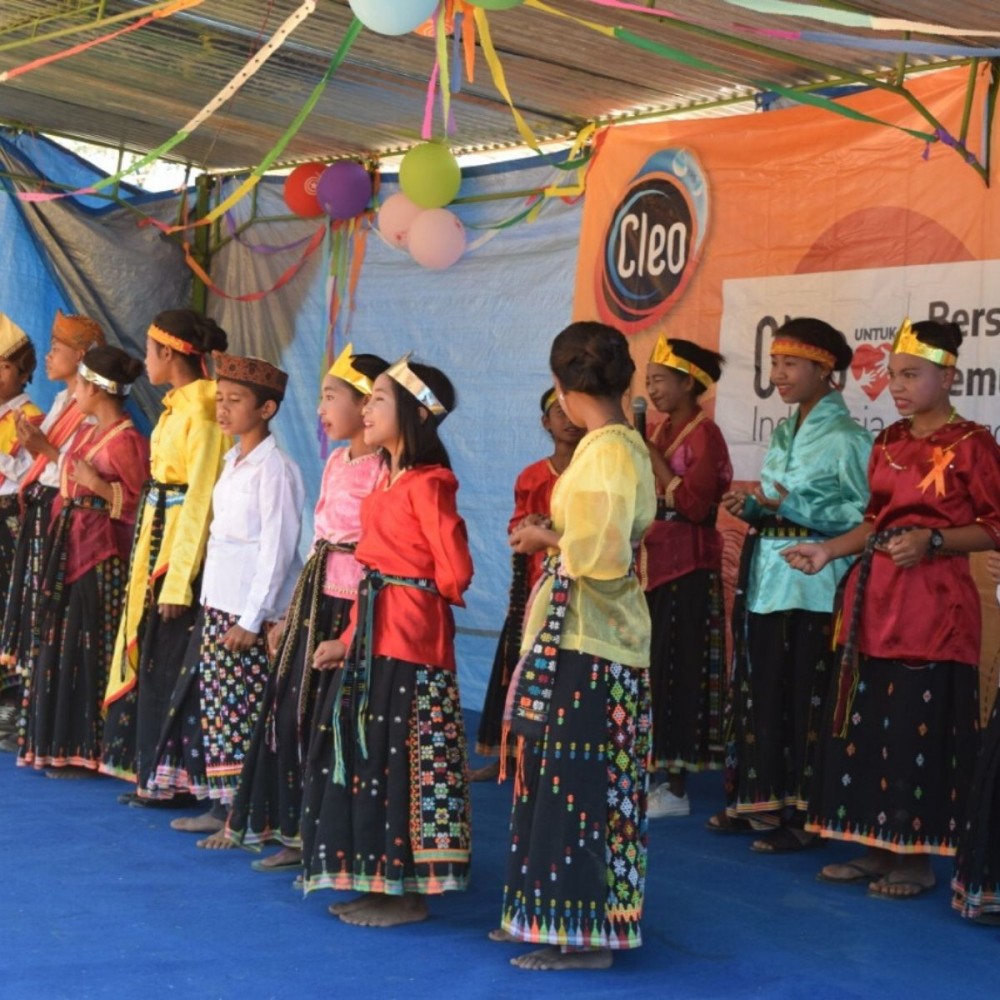Moms' Groups, Floating Nutrition Garden Heroes

That day's weather was sweltering, with the scorching sun in Asmat Regency. However, it did not dampen the spirits of the women who would harvest the produce of their floating gardens. "Today, we all want to harvest kale," said Mama Bernadona, who is a member of Floating Nutrition Garden Group 1.
In Warse, Asmat Regency, there are four floating nutrition garden groups. Group 1 consists of 24 women, group 2 consists of 16 people, group 3 consists of 22 people, and group 4 consists of 14 people. These groups were established based on suggestions from the community due to limited land to build a Floating Nutrition Garden in each house. Finally, groups were established consisting of mothers who later became part of the Floating Nutrition Garden Group.
The Floating Nutrition Garden is a solution to the agricultural problems that people in Asmat Regency have experienced. The geographical condition of Asmat consists of swamps, so when rainfall is high, and water levels rise, all agricultural products and gardens planted by the community become submerged. The community still grows crops in a simple way so that crop failure often occurs, which leads to the need for more child nutrition due to the difficulty of access to food sources.
Through the Floating Nutrition Garden program, supported by 3M through GlobalGiving, WVI provides wood assistance, building the construction of floating gardens together with men and women. WVI and the community worked together, starting from determining the land, creating a floating garden, and finding the right soil to become a planting medium. WVI also provided vegetable and fruit seeds for the community members of the Floating Nutrition Garden group.
Initially, the women always sold the harvest. Therefore, WVI also trained and encouraged the women's groups not to sell the entire crop but to use it for children's nutritional needs, especially for families with under-five children. This is to improve the nutritional status of Asmat children, which was previously very poor. WVI also assists how in processing these vegetables so that children prefer to eat vegetables. "My child used not to like eating vegetables, but now he does. We were trained on how to cook these vegetables," added Mama Bernadona.
Writer: Yuventa (Head of Public Engagement and Communications Department)


